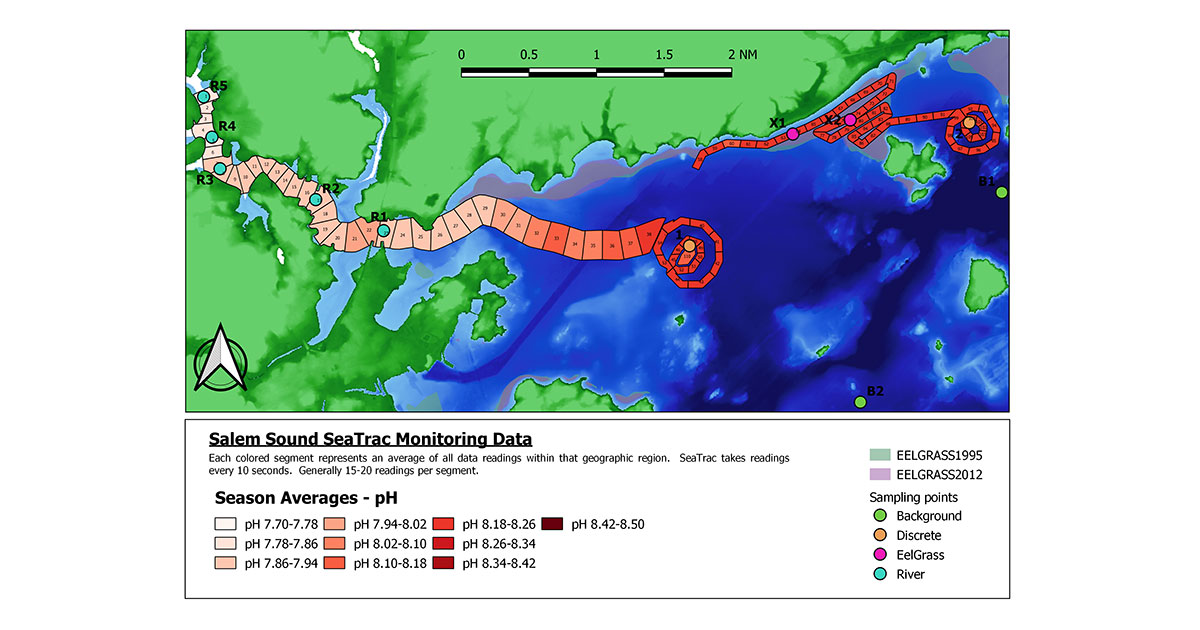For the second year in a row, SeaTrac’s solar powered autonomous surface vessel helped an interdisciplinary team of scientists from the Massachusetts offices of Coastal Zone Management (CZM) and MassBays National Estuary examine water quality conditions along the MA coastline to better understand the alarming decline in eelgrass populations.
North of Boston, a 43,000 hectare watershed drains into Salem Sound, a large embayment (3,660 ha) surrounded by six densely populated coastal communities. The waters of Salem Sound receive riverine input from the Danvers River, large volumes of stormwater runoff (>60% impervious surface) and wastewater from two treatment facilities. Massachusetts Department of Marine Fisheries estimates 81% eelgrass loss in Salem Harbor since 1995.
With funding from the U.S. Environmental Protection Agency (EPA), and building upon previous real-time data collection in another embayment (click here), the team outfitted SeaTrac’s ASV with a multi-parameter sonde and programmed it to autonomously navigate and continuously collect water quality data along transects in the Danvers River and across the Sound. SeaTrac collected salinity, temperature, dissolved oxygen, chlorophyll-a, pH and turbidity. In addition, water quality data were collected from 15 fixed locations across Salem Sound in proximity to eelgrass beds, and the wastewater outfalls.
The team conducted the mission eight times over summer 2019 with the goal of establishing a baseline and timeline for understanding nutrient dynamics across spatial and temporal variables. The SeaTrac vessel performed perfectly, helpfully repeating the exact same course and loitering over outflows, notes data analyst Ben Wetherill, of ACASAK Technologies. “Collecting data with unmanned systems such as SeaTrac’s increases the quality and timeliness of our efforts to understand and protect our water resources, which is very good news,” adds Todd Callaghan (CZM). “We would like to see this mission continued and replicated along all of our coastlines.”





